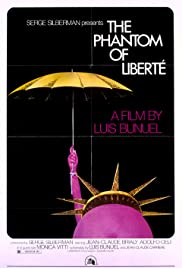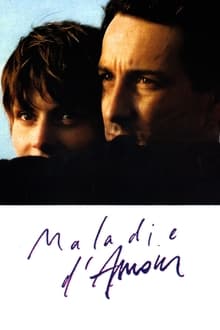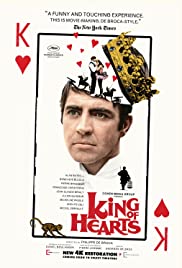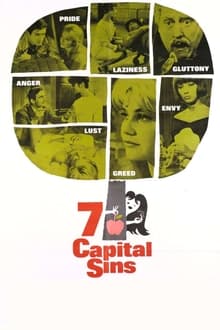Jean-Claude Brialy

On the eve of his wedding, on holiday on the Lake Annecy shore, a career diplomat visits an old acquaintance, perhaps a former girlfriend. Through her he meets an intense teenager, Laura, and then lusts after her sister, Claire. Whilst Laura attempts to flirt with him, his fantasy becomes focused on wanting to caress Claire’s knee.

Paul Martin is the subservient brown-nosing youngster who needs quick advancement up the hierarchy to pay for the modern lifestyle he is buying on credit. Seeing that marrying his immediate superior’s daughter will not get him the results he wants, he begins plotting the demise of the head of the company. The company itself specializes in holiday travel and unscrupulously brutalizes its customers for maximum profit, spending more thought on publicity gimmicks than customer service…

Vienna, 1906. A passionate love story develops between Franz Lobheiner and the young Christine. Lobheiner is, however, currently seeing the married Baroness von Eggersdorf. Upon learning of his wife’s infidelity, the Baron von Eggersdorf provokes a duel with Lobheiner. But the former is no longer a real threat to the Baron. Lobheiner is now passionately in love with Christine. How will this love quartet end?

The film consists of seven roughly 15 minute episodes, each showing what will happen if one or more of the Ten Commandments will be broken: Jérome Chambard is warned that he will lose his job if he continues to swear; Françoise Beaufort enamored of a stripper calls on her only to find her married to a janitor who doesn’t know what kind of dancing his wife performs; Denis, a Jesuit novice, leaves the order to avenge his sister’s suicide, which was provoked by Garigny, who seduced her into prostitution and drug addiction; Philip buys a necklace for Micheline though he is bored with her; a young man find out that his real mother is not Madeleine, but actress Clarisse Ardant; Didier Marin, cashier of a bank, was fired by his boss; the Devil appears as a serpent for Jérome Chambard and the bishop are eating.

This Surrealist film, with a title referencing the Communist Manifesto, strings together short incidents based on the life of director Luis Buñuel. Presented as chance encounters, these loosely related, intersecting situations, all without a consistent protagonist, reach from the 19th century to the 1970s. Touching briefly on subjects such as execution, pedophilia, incest, and sex, the film features an array of characters, including a sick father and incompetent police officers.

Two physicians, one old and one young, fall in love with the same woman, Juliette, a quixotic hairdresser. First, she is with Raoul, the older one; then passion for Clément, the younger doctor, takes over. Raoul fights back, playing on Clément’s guilt and Juliette’s lack of self-assurance; then, Clément makes his case to Juliette, abandons his fiancée, and takes her to the provinces where he sets up practice and asks her to have a baby. She panics and abruptly leaves Clément, taking up with Raoul again. When she contracts Hodgkin’s disease and the treatment does no good, Raoul believes she has the malady of love. Is there a cure?

An ornithologist mistaken for an explosives expert is sent alone into a small French town during WWI to investigate a garbled report from the resistance about a bomb which the departing Germans have set to blow up a weapons cache.

Seven directors each dramatize one of the seven deadly sins in a short film. In “Anger,” a domestic argument over a fly in the Sunday soup escalates into nuclear war. In “Sloth,” a movie …